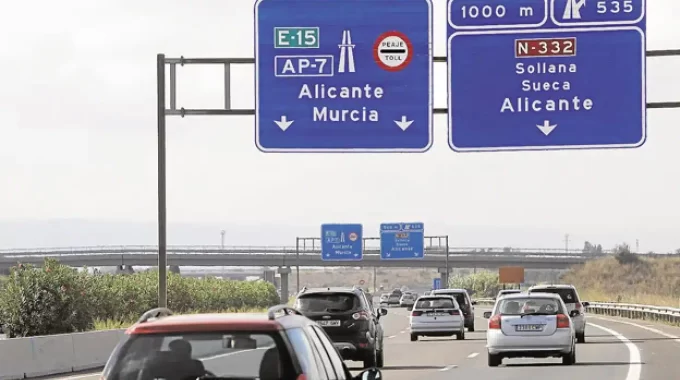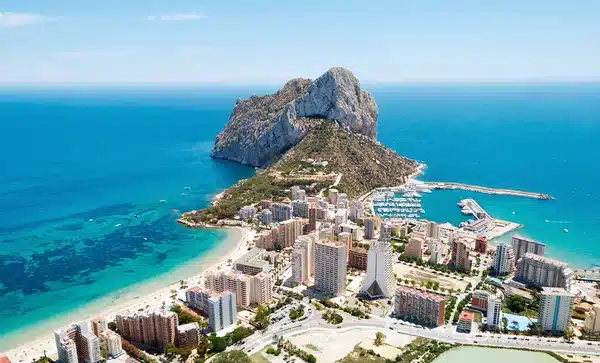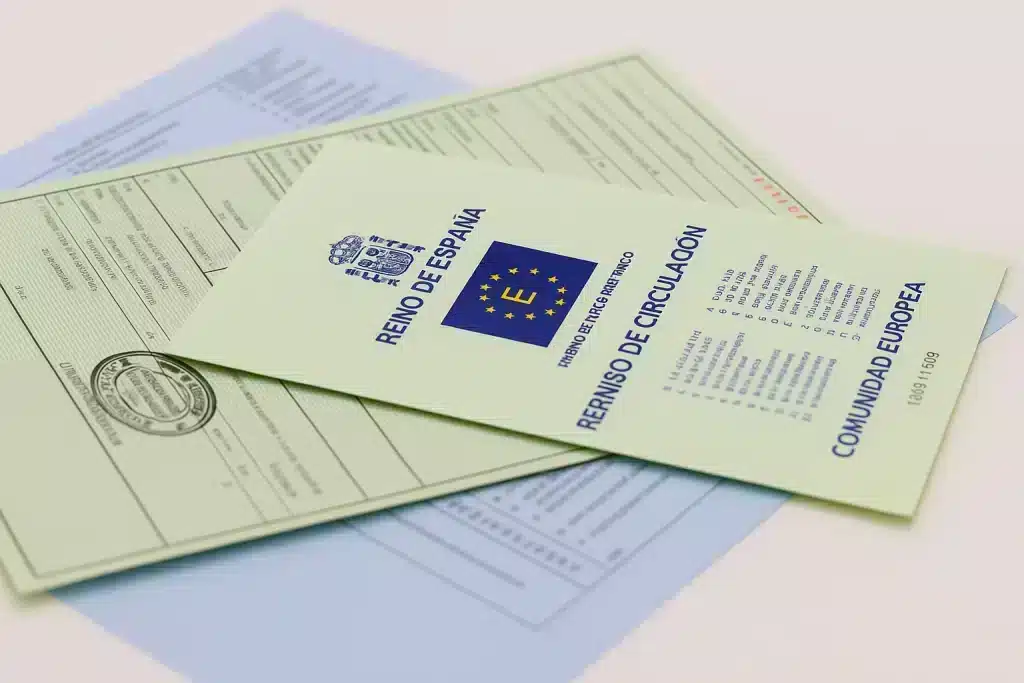
Car transport to the Costa Blanca by lorry: prices, timelines and step-by-step guide 2025
Moving your vehicle to the Costa Blanca can feel like one more worry when you’re relocating, spending a season there or simply want your own car for the holidays without driving hundreds of kilometres. If you’re searching for car transport Costa Blanca by lorry, this guide explains why it’s the most comfortable, safe and, in many cases, economical option. Below you’ll find everything you need to make an informed decision and book with confidence.
Why transport your car to the Costa Blanca by lorry? (safety, savings and convenience)
Hiring a specialist service avoids mechanical wear, fuel and toll costs, and long hours behind the wheel. Your car travels insured, monitored and handled by professionals to minimise the risk of damage. For remote workers, families with children or international residents who fly directly to Alicante, delegating the move means more free time and less stress.
How the service works (from collection to delivery)
A clear, standardised process makes all the difference. These are the usual steps:
Booking and route confirmation
After requesting your quote, you’ll receive a proposed date and price. Confirmation is usually formalised in writing (email or WhatsApp) together with the transport terms and proof of insurance.
Door-to-door collection and loading on the car transporter
A trained driver arrives at the agreed address, inspects the vehicle, takes photos and completes the loading report. Once these tasks are done, the vehicle is loaded onto the lorry.
Delivery at destination
The driver will contact you a few hours before reaching the Costa Blanca to coordinate both the exact meeting point and delivery time. A final inspection is carried out and the delivery report is signed.
Indicative prices and cost drivers
A fixed price requires certain details, but these ranges will guide you:
- Madrid → Alicante: €350 – €450
- Barcelona → Benidorm: €300 – €400
- Paris → Dénia: €750 – €950
These prices are for guidance only and the final amount varies according to different factors explained below.
Distance, vehicle type and urgency
More kilometres and bigger/heavier vehicles (SUV, van) increase the price. Express services (dedicated lorry) can raise the rate by up to 40%.
Origin/destination and access
Collection and delivery will always take place in areas where the lorry can access without issues; if a detour is necessary for this reason, additional transport costs may apply.
Peak season and date flexibility
July–August and Christmas see peak demand. If you can bring your date forward or push it back a few days, you’ll benefit from free spaces at better rates.
Typical routes and estimated times to the Costa Blanca
From Madrid / Barcelona / Basque Country
- Madrid: 24–36 h transit, daily departures.
- Barcelona: 18–24 h, departures Monday to Saturday.
- Bilbao–San Sebastián: 36–48 h, departures on Tuesdays and Fridays.
From France, Germany, Belgium and the Netherlands
- Toulouse / Lyon: 36–48 h.
- Paris: 48–60 h.
- Munich / Frankfurt: 3–4 days.
- Brussels / Amsterdam: 4–5 days.
Times to Alicante, Benidorm, Dénia, Jávea/Xàbia, Altea, Calpe, Torrevieja, etc.
Normally, the same day the lorry reaches our Alicante hub, the final leg to your meeting point is completed. Depending on traffic and accessibility, final delivery is completed within a further 2–6 hours.
Common delivery areas in the Costa Blanca (lorry access)
Valid meeting points
Open-air car parks, service areas along the AP-7, fuel stations with large forecourts, and two-way streets wider than 7 metres.
Note: delivery will always be made in an area where the lorry can enter and manoeuvre safely. If your residential area has narrow streets, please agree a nearby point in advance.
Costa Blanca towns: access and practical tips
Alicante — Well connected via AP-7 and A-31, with a high-speed train station and airport minutes away. With a car you can alternate between San Juan beach and nearby nature spots without relying on public transport. In summer, use park-and-ride car parks and wide roads for delivery.
Benidorm — Direct access via AP-7 and N-332. Having a car lets you move at your own pace between urban beaches and viewpoints. In peak season, regulated car parks make stops easier and avoid unnecessary laps.
Dénia — Linked to AP-7 (exit 62) and N-332. A car makes it easy to combine the Les Rotes coves with Montgó routes. Open car parks near the port work well outside rush hours.
Jávea/Xàbia — Access via CV-734 and local roads. Scenic routes connect viewpoints and coves such as Granadella or Portitxol. The old town and residential areas have narrow streets: arrange delivery on wider roads and continue from there.
Altea — Well connected via N-332. The old town is pedestrian with slopes; better to park on the outskirts and walk up. With a car you can explore Serra Gelada and nearby coves.
Calpe — Access via AP-7 (exit 64) and N-332. A car is handy to mix urban beaches with coves and viewpoints around the Rock of Ifach. In summer, use regulated car parks and avoid the busiest hours.
Torrevieja — Connected via AP-7 and N-332. A car makes it easy to visit beaches such as La Mata and shopping areas. Open areas at the town entrance are convenient meeting points for delivery.
Santa Pola — Easy access via N-332, close to Alicante Airport. Ideal for reaching the salt flats and ferries to Tabarca (park on the outskirts and walk to the port).
Guardamar del Segura — Well connected via N-332 and CV-91. A car opens up long dune-backed beaches with signed parking areas.
Villajoyosa — AP-7 (exit 66) and N-332. Car parks at the town entrance give straightforward access to the old quarter and nearby coves.
Moraira — Access via CV-737 and CV-746. Narrow streets in town; arrange delivery on wider avenues and then head to coves and viewpoints.
El Campello — Linked via N-332 and the TRAM. A car helps you combine urban beaches with northern coves. Seafront car parks are useful for quick errands.
Orihuela Costa — Access via AP-7 and N-332. A large coastal urban area with many coves and retail centres; with a car you save time between stops. For delivery, prioritise open areas with easy manoeuvring.
Documentation and requirements
- Vehicle keys: hand them to the driver to allow loading and unloading without delays. Keep a spare set.
- Vehicle registration certificate and valid MOT/ITV: originals or paper copies; ensure the inspection is current to avoid issues at checks.
- Mandatory insurance up to date: provide proof of payment or a certificate of the current policy valid for driving in Spain.
- Signed authorisation if a third party acts for the owner: sign the standard form (PDF) and attach a copy of the owner’s ID to delegate collection or delivery.
How to prepare your car for transport (checklist)
- Fully charge the battery or, at least, make sure it holds enough charge and check that the handbrake engages and releases properly; this prevents movement during loading and unloading.
- Remove all personal items, loose satnavs, detachable spoilers and any accessory that may move inside or outside the cabin; store them separately to avoid damage and speed up inspection.
- Check tyre pressures as per the manufacturer’s recommendation, adjust if needed, and fold the mirrors to reduce total width and avoid scuffs when loading.
- Take a 360° photo set, including close-ups of wheels, bumpers and glass, to keep a detailed record before transport and travel with peace of mind.
Insurance and updates
Cover during loading, transit and unloading
All professional road shipments are covered by the CMR Convention with a minimum statutory indemnity. For high-value cars you can add an all-risks policy with a reduced excess.
Photo report
You’ll receive a set of images of the car at loading and at delivery for your peace of mind.
Calendar and peak-season tips
Summer, bank holidays and long weekends
Book at least 3–4 weeks ahead for July and August; for Easter or the December bank holiday, 10–15 days are usually enough.
How to save with flexible dates
Being flexible with dates can bring significant savings on final transport costs, as it allows us to use shared routes and free spaces on lorries.
Questions? Let’s talk!
📞 +34 685 763 009 | ✉️ support@cartransporteurope.com We’ll be happy to help you plan your next trip on wheels.
Frequently Asked Questions (FAQ)
How long does it take to Alicante or Benidorm?
Between 24 and 48 hours from Madrid/Barcelona, 48–60 hours from southern France and 72–96 hours from Germany (e.g., Munich or Frankfurt). Other origins are listed in the routes section.
Can I leave items inside the car?
Yes — provided they are properly secured and the total weight does not exceed an excessive amount (generally between 100 and 200 kg, depending on the carrier’s policy). Dangerous goods or loose luggage in the cabin are not allowed. Check the carrier’s exact weight limit when booking.
Do I have to be present at collection/delivery?
Ideally you or an authorised person should be present to sign the report.
What if my date changes?
If you need to reschedule, please contact the company as soon as possible to find a solution together; note that late changes may incur rescheduling fees.



